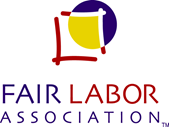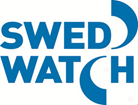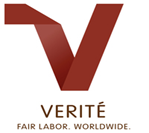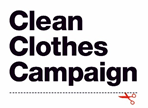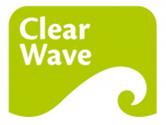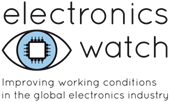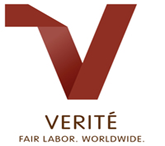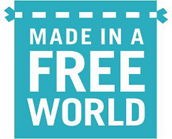NGOs & CIVIL SOCIETY | ||
.
Name of Resource | A Guide to Traceability: A Practical Approach to Advance Sustainability in Global Supply Chains |
Type | Report |
Country / jurisdiction | Global |
Organization | Business for Social Responsibility |
Date of publishing | 9 April 2014 |
Description | This guide provides an overview of the importance of traceability for sustainability purposes, outlines the global opportunities and challenges it represents, and summarizes practical steps for implementing traceability programme within companies. Research for this guide revealed that traceability is a tremendously impactful tool for advancing sustainability objectives, but it still has a long way to go before it is an integral part of sustainable supply chain management and used widely by companies. At present, only a very small percentage of commodities are traceable on sustainability attributes. |
Availability |
Name of Resource | Addressing Risks of Forced Labor in Supply Chains: Protecting Workers from Unfair Restrictions on their Freedoms at Work |
Type | Practical/implementation tool |
Country / jurisdiction | Global |
Organization | Fair Labor Association |
Date of publishing | 17 August 2017 |
Description | The brief focuses on best practices for identifying and eradicating forced labour at the supplier level. It explains the indicators of forced labour as incorporated into the Fair Labor Association (FLA) code, provides examples of risks and violations reported by the FLA’s on-the-ground assessors, and offers recommendations of proactive and cooperative steps that brands can take to ensure that suppliers do not engage in or tolerate trafficking and forced labour. |
Availability | ENG: http://www.fairlabor.org/report/addressing-risks-forced-labor-supply-chains |
Name of Resource | Agents for change. How public procurers can influence labour conditions in global supply chains. Case studies from Brazil, Pakistan and Thailand |
Type | Report/analysis |
Country / jurisdiction | Global |
Organization | SwedWatch |
Date of publishing | 15 November 2016 |
Description | The report focuses on the social aspects of supply chains and examines how contracting authorities in the EU can use social criteria to improve labour conditions in countries where poor labour standards are rife. The report draws on experiences and lessons learned from the Swedish public market in the hope that they may prove useful to policy-makers and contracting authorities in other countries. The report also aims to provide Sweden’s own purchasing authorities with an overview of risks and opportunities. Case studies presented review labour conditions in: 1) Pakistani factories that produce surgical instruments; 2) Thai poultry factories; and 3) Brazilian coffee farms, and illustrate how Swedish contracting authorities have used social criteria (or not). |
Availability | ENG: http://www.swedwatch.org/wp-content/uploads/2016/11/82_Agents-for-Change-enkelsidor.pdf |
Name of Resource | An Ethical Framework for Cross-Border Labor Recruitment: An Industry/Stakeholder Collaboration to Reduce the Risks of Forced Labor and Human Trafficking |
Type | Report / analysis |
Country / jurisdiction | Global |
Organization | Verité, Manpower Group |
Date of publishing | 2012 |
Description | The Ethical Framework for Cross Border Labor Recruitment offers a set of specific operational practices (“Standards of Ethical Practice”) for recruitment firms that operate across borders. These practices are reinforced by a Verification and Certification system to document compliance and provide essential information to third parties and potential business partners. The framework, including the verification process, is designed as a remedy to the current institutional fragmentation of the cross-border recruitment marketplace, where employers, recruiters, and their local and regional subcontractors may operate in different jurisdictions with limited accountability to one another, to regulators, or to workers. The framework creates a set of credentials and information for third parties that will help eliminate unscrupulous brokers. |
Availability | ENG: https://www.verite.org/wp-content/uploads/2016/12/ethical_framework_paper.pdf |
Name of Resource | An Introduction & Commentary to the 2011 UN Guiding Principles on Business and Human Rights & their Implementation in the Maritime Environment |
Type | Report / analysis |
Country / jurisdiction | Global |
Organization | Human Rights at Sea |
Date of publishing | 2016 |
Description | The commentary explains how and why the UN Guiding Principles on Business and Human Rights should apply throughout the maritime environment to all business enterprises and in all business operations throughout the maritime supply chain, both on land and at sea. It highlights risks, delivers case studies and identifies pertinent examples, including references to existing business and human rights policies, and their application. The publication also provides background to the increasingly common requirement for consideration and use of Human Rights Impact Assessments in the business sector, as highlighted by the European Commission’s guidelines on the analysis of human rights in impact assessments as part of the Better Regulation agenda adopted by the Commission in May 2015. The publication offers some key self-help guidance as part of basic management actions that can be taken to address implementation of business and human rights in an enterprise. |
Availability | ENG: https://www.humanrightsatsea.org/business-and-human-rights/ |
Name of Resource | Beyond SB 657: How Businesses Can Meet and Exceed California’s Requirements to Prevent Forced Labor in Supply Chains |
Type | Report/analysis |
Country / jurisdiction | Global |
Organization | The Alliance to End Slavery and Trafficking |
Date of publishing | January 2013 |
Description | The report provides guiding principles for companies required to comply with California’s anti-trafficking law and for any company working to eliminate forced labour from their supply chains. Key elements of the report include details on: tracing and verification of product supply chains; quality supplier audits; approaches to prevention; internal accountability standards; mapping high risk areas; empowerment of workers and vulnerable communities; employee and management training, and; public posting of a company’s engagement towards eliminating human trafficking and slavery within supply chains. |
Availability |
Name of Resource | Clean Clothes Campaign |
Type | Platform for co-operation, Knowledge/information hub |
Country / jurisdiction | Global |
Organization | Clean Clothes Campaign |
Date of publishing | 1989 |
Description | Clean Clothes Campaign is an international alliance dedicated to improving working conditions and empowering workers in the global garment and sportswear industries. It brings together trade unions and NGOs covering a broad spectrum of perspectives and interests, such as women’s rights, consumer advocacy and poverty reduction. As a grass-roots network of hundreds of organizations, both in garment-producing and in consumer markets, the Campaign can identify local problems and objectives and transform them into global actions. Clean Clothes Campaign develops campaign strategies to support workers in achieving their goals. |
Availability |
Name of Resource | Clear Wave: transparency business-labelling initiative |
Type | Certification/standards’ assessment |
Country / jurisdiction | Lithuania |
Organization | Clear Wave |
Date of publishing | 2007 |
Description | Clear Wave is a transparency business-labelling initiative. The main objective of the initiative is to encourage a transparent and ethical Lithuanian business practice. Companies involved in this project assume the responsibility for the creation of a responsible and transparent way to operate, and to encourage their business partners to: take transparent and fare participation in the tenders (public procurement) – without corruption to their organizers and members of the jury, without resorting to illegal financial and non-financial measures to gain advantage against other participants; comply with the laws of the Republic of Lithuania and fairly pay the fees and taxes provided; maintain transparent accountability and payment to their employees. |
Availability | ENG: http://www.baltojibanga.lt/lithuania-without-shadow.html |
Name of Resource | Compliance Report Update: Cal-Comp Electronics, Thailand |
Type | Report/analysis |
Country / jurisdiction | Thailand |
Organization | Electronics Watch |
Date of publishing | October 2018 |
Description | This report documents research conducted by Electronics Watch from 2016 to 2018, based on interviews with recruitment agents and migrant workers from Myanmar working at Cal-Comp’s two major production facilities in the Samut Sakorn and Petchaburi Provinces of Thailand. This research shows that whilst there has been considerable improvements in treatment of migrant workers at these two facilities, Cal-Comp remains far from complying with ethical recruitment standards as stated in the RBA Code of Conduct. As a result, migrant workers are still at risk of forced labour. Whilst remaining in compliance with Thailand’s migration laws, systematic exploitation of migrant workers has arisen in Cal-Comp’s migrant worker recruitment channels, resulting in non-compliance with Myanmar’s prescribed limits on fees that can be charged to migrating workers. Electronics Watch makes an update report on the situation as well as a Remedy Proposal for Cal-Comp Workers, which can be found here: http://electronicswatch.org/ca/proposta-de-soluci%C3%B3-per-a-les-persones-treballadores-de-cal-comp-tail%C3%A0ndia-febrer-2019_2556087.pdf?disposition=attachment |
Availability |
Name of Resource | Compliance Report: Foxconn in Pardubice, Czech Republic |
Type | Report/analysis |
Country / jurisdiction | Czech Republic |
Organization | Electronics Watch |
Date of publishing | April 2017 |
Description | This report is a follow-up to the April 2016 Factory Risk Assessment: Foxconn at Pardubice, Czech Republic (Electronics Watch Risk Assessment) and the Hewlett Packard (HP) findings reported in July 2016 and December 2016. It assesses labour rights compliance in Foxconn´s Pardubice factory based on Czech labour law, ILO and EU labour standards binding in the Czech Republic, and the HP Supplier Code of Conduct. Part I offers an overview of the investigatory findings, which are explained in detail in the body of the report. Annex I includes a simplified but comprehensive review of findings, as well as recommendations for improvements. |
Availability |
Name of Resource | Corporate approaches to tackling modern slavery |
Type | Report/analysis |
Country / jurisdiction | United Kingdom |
Organization | Ethical Trading Initiative, Hult International Business School |
Date of publishing | 16 October 2015 |
Description | The Ethical Trading Initiative (ETI) and Ashridge Centre for Business and Sustainability at Hult International Business School partnered to lead the research into company perspectives and responses to the risks of modern slavery in their global supply chains — against a backdrop of increasing global human rights legislation and reporting requirements. The report reflects an overview of current practice in the companies who volunteered to participate in a survey. It is not a guide for good practice, nor an assessment of companies’ readiness or capacity to meet the requirements of new legislation. Instead, it draws on valuable insights from a group of companies that are likely to be further along in their thinking and practice than others. |
Availability | ENG: https://www.ethicaltrade.org/resources/corporate-approaches-tackling-modern-slavery |
Name of Resource | Corporate Compliance with the California Transparency in Supply Chains Act of 2010 |
Type | Report/analysis |
Country / jurisdiction | United States of America |
Organization | Development International |
Date of publishing | 2 November 2015 |
Description | The study focuses on the first disclosure law addressing human trafficking and slavery within the global marketplace – the California Transparency in Supply Chains Act of 2010 (CA-TISCA). CA-TISCA requires human trafficking and slavery-pertinent disclosure statements from large corporate earners operating in the state. The degree of corporate disclosure compliance with CA-TISCA was systematically evaluated by individually assessing qualifying companies’ statements as disclosed against eight compliance criteria based on the law’s core requirements, resulting in a compliance score, and seven indicators regarding affirmative conduct, yielding an affirmative score. The study reveals that, overall, compliance performance greatly varies between companies. The average disclosure compliance score was 60%. Forty-one (41%) percent of companies were found to have a corporate disclosure score on or above the 70% mark. |
Availability | ENG: http://media.wix.com/ugd/f0f801_0276d7c94ebe453f8648b91dd35898ba.pdf |
Name of Resource | Database & Analysis of Company Reporting |
Type | Registry / data base |
Country / jurisdiction | Global |
Organization | Human Rights Reporting and Assurance Framework Initiative, co-facilitated by Shift and Mazars |
Date of publishing | August 2016 |
Description | The United Nations Guiding Principles Reporting Database is an independent, public resource developed by Shift that makes it possible for anybody to see what some of the world’s largest companies say about human rights. By shining a light on companies’ existing reporting about their human rights practices, the source aims to increase awareness of both lagging and leading practices, thereby incentivizing improvements that can make a real difference in the lives of people affected by business. |
Availability |
Name of Resource | Enable Training toolkit on addressing child labor and forced labor in agricultural supply chains |
Type | Practical/implementation tool |
Country / jurisdiction | Global |
Organization | Fair Labor Association |
Date of publishing | 12 December 2018 |
Description | The Fair Labor Association developed the Enable Training Toolkit to prepare sustainability managers, master trainers, and field-level practitioners to apply components of the USDA Guidelines for Eliminating Child Labor and Forced Labor in Agricultural Supply Chains in the context of their own organizations. It aids in the understanding of implementing a human rights due diligence programme. The Enable Toolkit contains six training modules, a facilitator's guide, presentation slides, and a participant manual. The toolkit provides guidance to companies and suppliers who are interested in adopting the USDA Guidelines or similar responsible sourcing frameworks, and supports fulfilment of emerging regulatory requirements on supply chain mapping and the abolition of child labour issues in supply chains. The EnableToolkit is based on a modular approach and can be conducted consecutively or as independent courses. |
Availability |
Name of Resource | Engaging the private sector to end human trafficking. A resource guide for NGOs |
Type | Report/analysis |
Country / jurisdiction | Netherlands |
Organization | La Strada International, Somo |
Date of publishing | October 2015 |
Description | The Resource Guide provides guidance and background information for anti-trafficking NGOs in Europe on the role of the private sector in trafficking in human beings. It provides facts and figures on human trafficking and forced labour in Europe, an explanation of the overlaps and differences in the legal definitions of human trafficking and forced labour, as well as numerous case studies on human trafficking and forced labour in Europe throughout the text. It also provides some strategic guidance on whether and how anti-trafficking organizations can best engage with the private sector, if they choose to involve this new stakeholder in their work. |
Availability |
Name of Resource | Ethical Trading Initiative Base Code |
Type | Policy |
Country / jurisdiction | United Kingdom |
Organization | Ethical Trading Initiative |
Date of publishing | 2018 |
Description | The Ethical Trading Initiative (ETI) has developed a code of labour practice - the 'Base Code' - reflecting the most relevant international standards with respect to labour practices which will be used as the basis of its work. ETI member companies are expected to adopt the Base Code, or to adopt their own code so long as it incorporates the Base Code. The Base Code which is accompanied by a set of general principles concerning implementation provides a foundation for the ETI's philosophy of learning. Member companies must require that suppliers meet agreed standards within a reasonable timeframe, and that performance in this regard is measured, transparent and, ultimately, a precondition to further business. |
Availability |
Name of Resource | Fair Hiring Toolkit |
Type | Guidance on policy / legislation implementation |
Country / jurisdiction | Global |
Organization | Verité |
Date of publishing | 2015 |
Description | The Fair Hiring Toolkit offers tools, guidance, and approaches to support the responsible recruitment and hiring of migrant workers in global supply chains. In the Fair Hiring Toolkit, investors will find material that can be used to support investor campaigns, corporate advocacy, shareholder dialogue and investment analysis. Readers will find material relating to corporate codes of conduct, training and capacity building, reporting and transparency, and social auditing, with each focused on preventing the risks of recruiter-led forced labour and protecting migrant workers. These tools can help evaluate a company’s level of risk and commitment; and support advocacy to improve corporate policies, programmes and performance against exploitation in the supply chain. |
Availability |
Name of Resource | Forced Labour Risk Determination and Mitigation |
Type | Analysis tool |
Country / jurisdiction | Global |
Organization | Made in a Free World |
Date of publishing | 2011 |
Description | Forced Labour Risk Determination and Mitigation is a software product that gives insight into the complex web of global business-to-business commerce and locates specific hot spots of risk in a supply chain for any industry. Forced Labour Risk Determination and Mitigation provides companies with a clear blueprint to mitigate their risk of unknowingly investing in suppliers who exploit forced or child labour. |
Availability |
Name of Resource | Guide for the protection and promotion of human rights in public contracting |
Type | Guidance for policy / legislation implementation |
Country / jurisdiction | Spain |
Organization | International Institute for Nonviolent Action, Servei Civil International, Nexes |
Date of publishing | 2017 |
Description | This guide was developed for public administration bodies, especially in the Catalan region, on how to include the protection of human rights in their public procurement processes, in particular vis-a-vis suppliers beyond the already recognized clauses. The purpose of the guide is to promote a more just, sustainable, and social world where human rights violations do not go unpunished. The guide is intended for the use of the local administration of Catalonia, including municipal companies with public majority participation. This does not prevent the guide from becoming a reference text for the other local entities in Spain. |
Availability |
Name of Resource | Guide to buying responsibly |
Type | Guidance on policy / legislation implementation |
Country / jurisdiction | Global |
Organization | Ethical Trading Initiative |
Date of publishing | 7 September 2017 |
Description | This Guidance focuses on companies and their purchasing practices, drawing on the findings of a collaborative supplier survey run in partnership between the joint ethical trading initiatives and the International Labour Organization, with support from SEDEX. The guide includes best practice examples and outlines the five key business practices that influence wages and working conditions. |
Availability | ENG: https://www.ethicaltrade.org/resources/guide-buying-responsibly |
Name of Resource | Guidelines for the Evaluation of Workers’ Human Rights and Labour Standards |
Type | Guidance on policy / legislation implementation |
Country / jurisdiction | Global |
Organization | Global Unions Committee on Workers' Capital |
Date of publishing | May 2017 |
Description | The Committee on Workers’ Capital Guidelines for the Evaluation of Workers’ Human Rights and Labour Standards are a comprehensive set of key performance indicators for investors to evaluate companies’ social performance. They were developed in response to concerns that investors are not equipped with tools to adequately scrutinize social issues, such as labour relations in their environmental, social and governance analysis. The guidelines are inspired by key international norms, standards and frameworks, including the UN Guiding Principles for Business and Human Rights, the OECD Guidelines for Multinational Enterprises and the ILO Fundamental Conventions. The indicators are grouped in ten themes: workforce composition, social dialogue, workforce participation, supply chain, occupational health and safety, pay levels, grievance mechanisms, training and development, workplace diversity, and pension fund contributions for employees. |
Availability | ENG: http://workerscapital.org/taskforce-on-sustainability-ratings |

